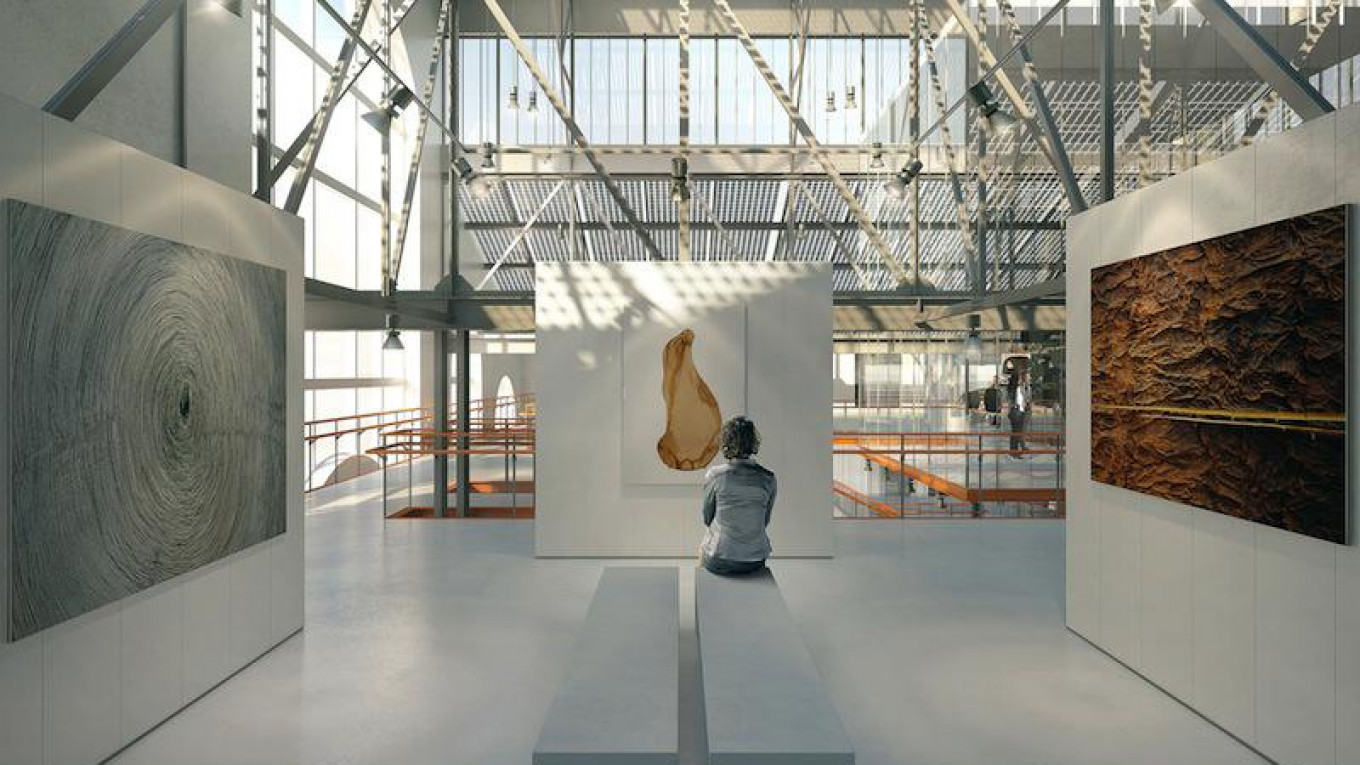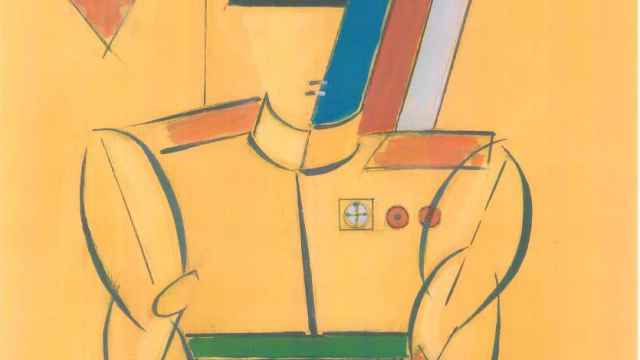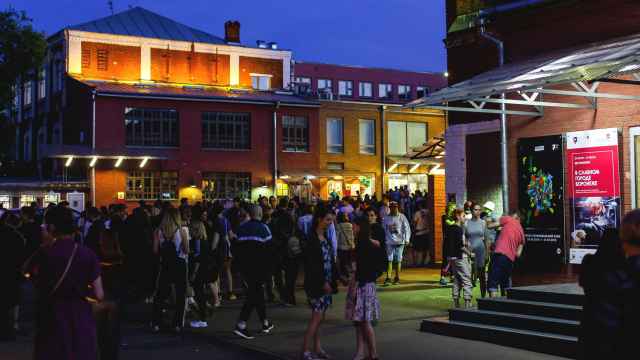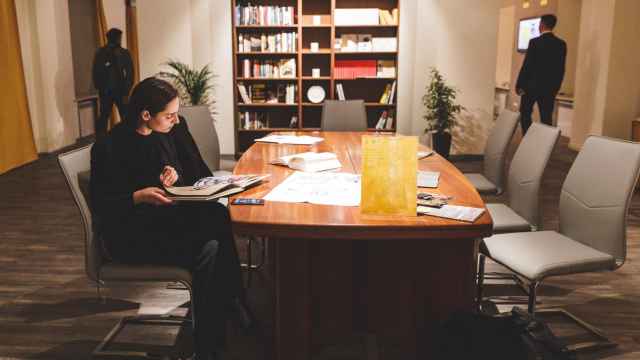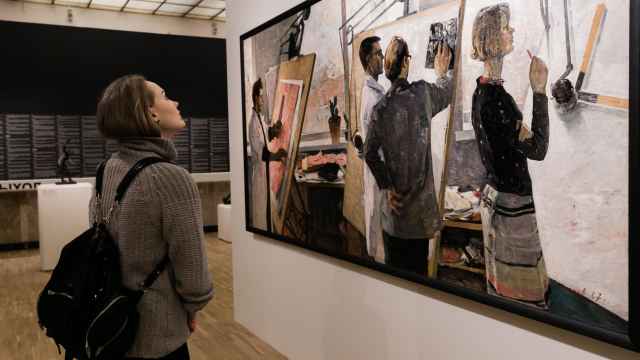An ambitious project to convert a former electric power station on the banks of the Moscow river into a new venue for contemporary art is underway. A collaboration between one of the largest private art institutions in Russia — the V-A-C Foundation — and leading architecture firm the Renzo Piano Building Workshop, it is hoped the GES2 complex will become a major cultural destination in the capital.
A Cultural Eco-System
The V-A-C Foundation was founded by Leonid Mikhelson — CEO and major shareholder of the gas company Novatek — who was named Russia’s richest man by Forbes earlier this year. Named after Mikhelson’s daughter, the V-A-C foundation — a moniker for “Victoria – the Art of being Contemporary” — aims to boost visibility of Russian artists abroad and raise the profile of Russian contemporary art.
Spearheading the new venture is Teresa Iarocci Mavica, a Neapolitan who has been involved with the V-A-C Foundation since its inception. Mavica sees the vision for the former GES2 plant as much broader than a museum in a regular sense of the word.
“I find the term a bit narrow. What we are creating is bigger than a museum. Here in Russia we are used to the limited concept of a museum: that a museum is a temple and a visit to a museum is something you need to prepare for. I use the word “plaza” or “square” — it’s a place where everything is happening simultaneously, a place where different interests overlap. Everyone can experience the plaza regardless of their age, nationality or education.”
The renovated power station on Bolotny Island will house a library, lecture halls, artists’ workshops, open spaces for performances and a small theatre. The V-A-C Foundation is not planning on a permanent collection, but there will be several traditional exhibition spaces and adaptable galleries. Birch groves will be planted around the building creating a green, calm and sustainable space for people to enjoy.
There are also plans afoot for artists’ residencies and project rooms onsite while V-A-C aims to continue the hugely popular curatorial summer schools it has been running for the past few years. In short, the venue will be an artistic hive that will produce Russian art, cultivate it and support the curators who will provide a valuable bridge between artwork and the public. The latter educational objective is particularly important to Mavica.
“A lot of people don’t know what contemporary art is. Some think it’s Pavlensky setting the door at Lubyanka on fire, others think it’s Alexander Shilov and Ilya Glazunov. The latter are contemporary in the sense that they are living today, but they have very little to do with art. People need to become educated about contemporary art — they need to get used to it.”
Building a Legacy
Mavica moved to Russia in 1989 at a watershed moment for the country. She worked in several cultural roles including at the Stella Art Foundation before starting her own foundation to support young curators — the Contemporary City Foundation. In 2009 Mavica met Mikhelson and came on board as head of the V-A-C. Speaking of her relationship with Mikhelson, Mavica expressed her appreciation for his support of the arts.
“He rehabilitated my opinion of Russians,” said Mavica. “I was a bit disappointed before — there are a lot of rich men in Russia who already have everything, but are not interested in investing in the future of their own country. They keep their riches in the family. Michelson’s way of thinking is completely different — he understands that all empires will end one day, and all that will be left is culture.”
The V-A-C’s dedication to the development of contemporary Russian art has already garnered attention in Russia and abroad. Along with shows of Russian art in Moscow and London, the V-A-C has also sponsored the past three editions of the Venice Biennale. During its exhibition program in Venice, the V-A-C showed Russian and Western artists who work in the same media side-by-side to demonstrate a common dialogue within the artistic community.
A notable example was a parallel program at last year’s Biennale featuring Arseny Zhilyaev from Voronezh and Mark Dion from the United States.“Arseny is a young artist, very promising and dedicated, while Mark Dion is already an established name,” said Mavica.
“I can say that Teresa simply changed my life and I know many Russian artists who can say the same,” said Zhilyaev, who first met Teresa in 2007, when she still worked at the Contemporary City Foundation. He later collaborated with her in her new role at the V-A-C Foundation to organize the exhibition in Venice.
Following the success of the V-A-C’s projects abroad, Michelson told Mavica he felt it was time to do something for his own country by opening an exhibition space in Moscow.
“Around that time, we heard that an electric plant in central Moscow, GES2, was being shut down,” said Mavica. “We know that all over the world places like this turn into art spaces, like the Tate Modern. So one day we went to see the plant, and Leonid just fell in love with the place.”
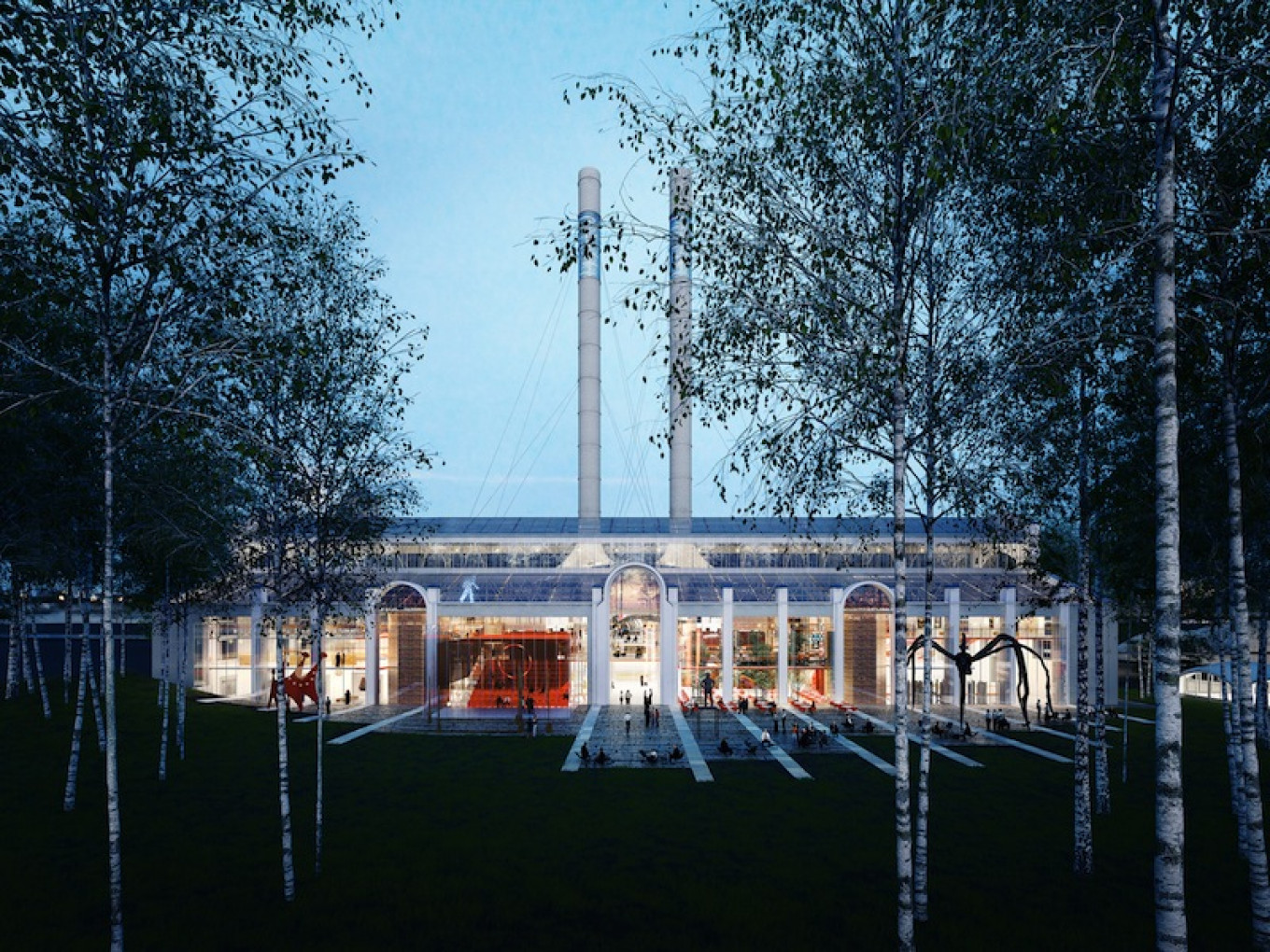
Regeneration
While the V-A-C will preserve the name and integral architecture of the original power station, the architecture firm of Renzo Piano have a very modern vision for the space. Renzo Piano, fronted by the eponymous architect, is the firm behind one of the most recognizable landmarks of today’s Paris — the Pompidou Center — as well as other leading cultural institutions like the Whitney Museum of American Art in New York. “We chose Renzo Piano because he is the best” said Teresa.
Antonio Belvedere, a partner at Renzo Piano and the head of GES2’s reconstruction said it took very little time for the firm to decide to take on this project.
“Why? Firstly, because there was a strong and genuine cultural vision behind the project. It’s a privilege to participate in the transformation of such a fresh, young and ‘culturally hungry’ Moscow environment. We will transform GES2, an incredible power station, and give back to the city a creative hub for people producing ideas and culture.”
Milena Orlova, editor-in-chief of The Art Newspaper Russia, commented on the architectural firm’s involvement in the project. “The project is being carried by Renzo Piano, and that is the most important thing for me as they mostly do projects with a significant public good component. Renzo Piano’s firm is rather small and they have to choose only the most interesting projects. I believe GES2 will be a space where people from the street could come and enjoy the architectural beauty, the shade, and cafes.”
It’s a fittingly unorthodox initial project for an unorthodox art venue. “GES2 is not an exhibition space — it’s a little bit of a city within the city. GES2 is a place with history. You can walk around the plant for months and find layers of every stage of Russian industrialization,” said Mavica.
GES2 ran a successful exhibition even before reconstruction work on the building formerly began. The group exhibition “Expanding Space,” was a presentation of the long list of public art projects selected by the V-A-C. The project studied the mechanism of interaction between artists and city government that leads to the fruition of art projects.
One of the projects exhibited at GES2 has actually been implemented. In late July “Lesa” by Anna Krivtsova, appeared on one of the facades of the Polytechnic Museum. The name is Russian wordplay with “Lesa” meaning both “woods” and “scaffolding.” The installation consists of dozens of potted plants placed on the scaffolding with backlighting so that the spectacle can be enjoyed at night.
The venue is expected to open in late 2018 or early 2019 and will add to existing contemporary art venues such as Garage and the Moscow Museum of Modern Art. But Mavica doesn’t see this as problematic.
“There’s no competition between cultural institutions — they are not shopping centers.”
A Message from The Moscow Times:
Dear readers,
We are facing unprecedented challenges. Russia's Prosecutor General's Office has designated The Moscow Times as an "undesirable" organization, criminalizing our work and putting our staff at risk of prosecution. This follows our earlier unjust labeling as a "foreign agent."
These actions are direct attempts to silence independent journalism in Russia. The authorities claim our work "discredits the decisions of the Russian leadership." We see things differently: we strive to provide accurate, unbiased reporting on Russia.
We, the journalists of The Moscow Times, refuse to be silenced. But to continue our work, we need your help.
Your support, no matter how small, makes a world of difference. If you can, please support us monthly starting from just $2. It's quick to set up, and every contribution makes a significant impact.
By supporting The Moscow Times, you're defending open, independent journalism in the face of repression. Thank you for standing with us.
Remind me later.


